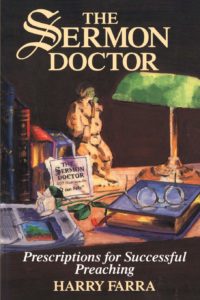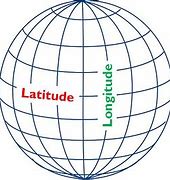Where Sermons Come From
Where Sermons Come From
Where do sermons come from as you prepare to preach? The easy answer is that they come from God through the working of the Holy Spirit in our lives. Right? Or we could say that they come from the Bible. But if you preach regularly, you know that there are times when sermons just come together. And then there are other times.
I remember a time when I was leading a major board in our denomination. In order to fulfill this responsibility, I had to travel from Southern CA, where I lived, to Michigan. For several days I had to lead meetings of 16 to 60 people, interact with the staff of the agency, and visit relatives that expected me to connect when I was in town. Then, on the way home, I would finally turn my attention to the fact that I had to preach on Sunday.
I was sitting in O’Hare airport in Chicago, with a pad and pen in hand, and just looked at the paper. No ideas  came to mind. Yes, I had an idea of what I wanted to preach on, but it seemed that the creative juices just weren’t flowing at that moment. This was probably due to the fact that my mind was full of all the things of the past few days.
came to mind. Yes, I had an idea of what I wanted to preach on, but it seemed that the creative juices just weren’t flowing at that moment. This was probably due to the fact that my mind was full of all the things of the past few days.
Have you ever had that? You sit in front of the computer screen, or with a book in hand, or on a walk, and nothing comes? That has caused me to think about where sermons come from for the preacher.
Sometimes It’s Easy
Then there are other times, when the sermon just falls together. I think my record is 20 minutes–in 20 minutes I had a complete outline of a sermon, ready for me to write the manuscript. Why is it so easy sometimes, and so difficult in others?
The Creation of a Sermon
In his interesting book, The Sermon Doctor, Harry Farro has his fictional character, the sermon doctor, reflect on this. He reflects back on some of the ancient Greek philosophers as he says,
 The ancient masters, such as Aristotle, Plato, and Augustine, discovered that anyone confronted with the need to make a speech gets involved with five investigative activities: the invention of ideas, the organization of ideas; ways to communicate those ideas in relevant, appropriate language; forceful ways to deliver those ideas; and specific methods for gaining mental and emotional command of one’s material. (The Sermon Doctor, p. 96)
The ancient masters, such as Aristotle, Plato, and Augustine, discovered that anyone confronted with the need to make a speech gets involved with five investigative activities: the invention of ideas, the organization of ideas; ways to communicate those ideas in relevant, appropriate language; forceful ways to deliver those ideas; and specific methods for gaining mental and emotional command of one’s material. (The Sermon Doctor, p. 96)
In this post we’re going to look at the first of these five activities, the invention of ideas, or, as I put it in the title, where sermons come from to the preacher.
Sermons Come From Connections
Sermons come from connections, or triggers in our minds, about a topic. When we boil down our sermon to a “big idea” (see this post for more on that), the word that we use to describe the main thing can trigger other thoughts.
Picture it this way: we have a huge amount of material stored in our brains. When we choose a “trigger” word, we immediately connect with a variety of experiences, ideas, thoughts, stories that are stored in the brain.
One person pictured it as a globe, with the latitude and longitude lines connecting around the globe. When we fall on one of those lines (with our thoughts), we immediate are connected to other experiences and ideas.
Where a Sermon On Love Comes From
For instance, let’s say that you are going to preach about love. Think about all the things you know about love. Then make a list. This is a great activity when you feel that the sermon palette is blank. You could list things like:
We love because God loves us.
The power of love is incredible.
Love is eternal.
Real love is not possible without an encounter with the God of love.
Love comes in various forms (from physical attraction, to self-sacrifice).
Etc.
Make the Connections
As I was writing that short list above, ideas and stories began to flood my mind. I thought of a man who  described what it was like to see his wife across the campus of the school they attended. Or the story of an alcoholic who changed when his son said that he never wanted to be like his father. Then there was the story of miraculous strength that some parents have exhibited when their child was under a car, or in the water. In the news right now is the death by downing of a woman who was out boating with her 4-year-old son. They went in swimming. The boat drifted away. This mother exerted all her energy to get her son back on board. But she then was exhausted and couldn’t get on herself. She sacrificed herself to save her son.
described what it was like to see his wife across the campus of the school they attended. Or the story of an alcoholic who changed when his son said that he never wanted to be like his father. Then there was the story of miraculous strength that some parents have exhibited when their child was under a car, or in the water. In the news right now is the death by downing of a woman who was out boating with her 4-year-old son. They went in swimming. The boat drifted away. This mother exerted all her energy to get her son back on board. But she then was exhausted and couldn’t get on herself. She sacrificed herself to save her son.
Practice making connections, and ideas will begin to flow.



